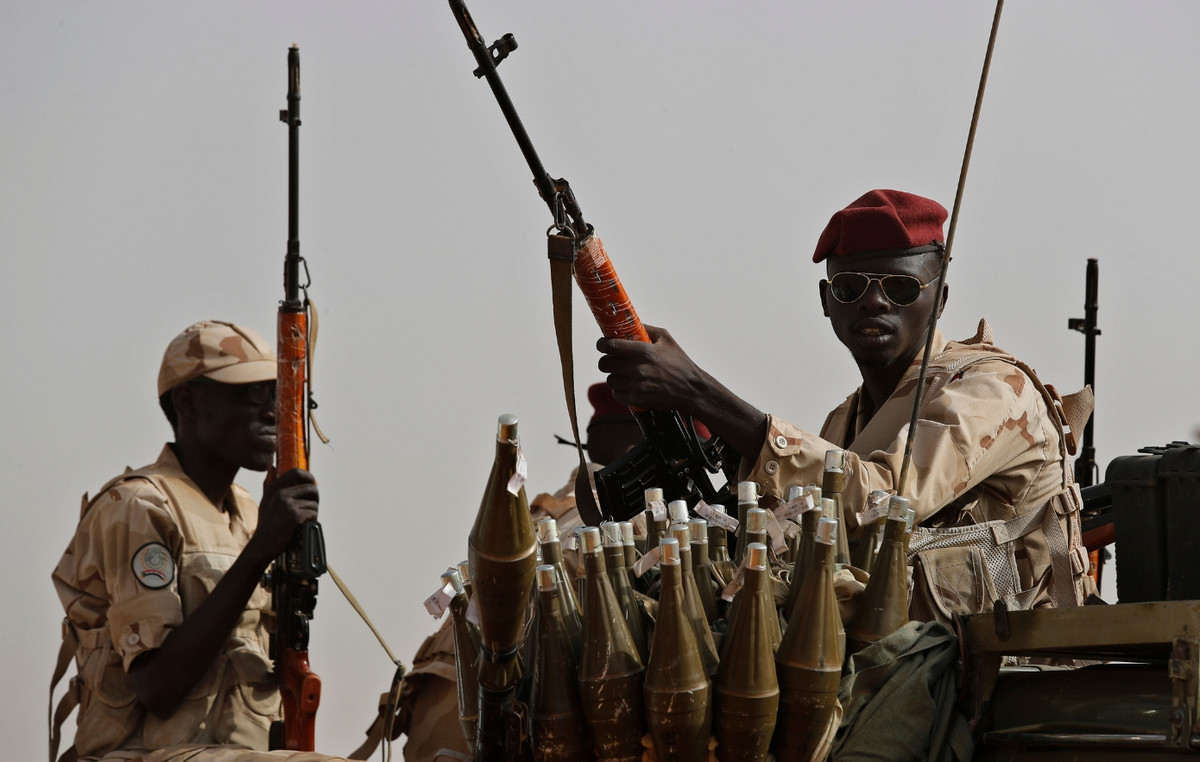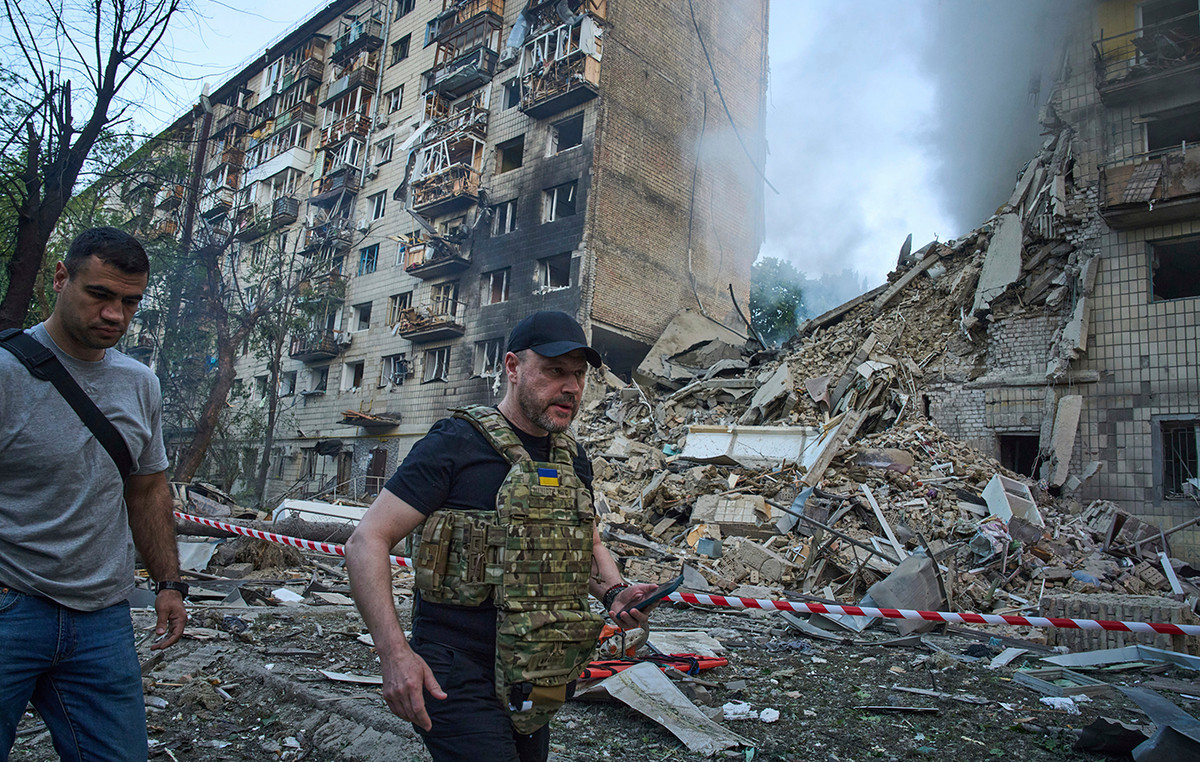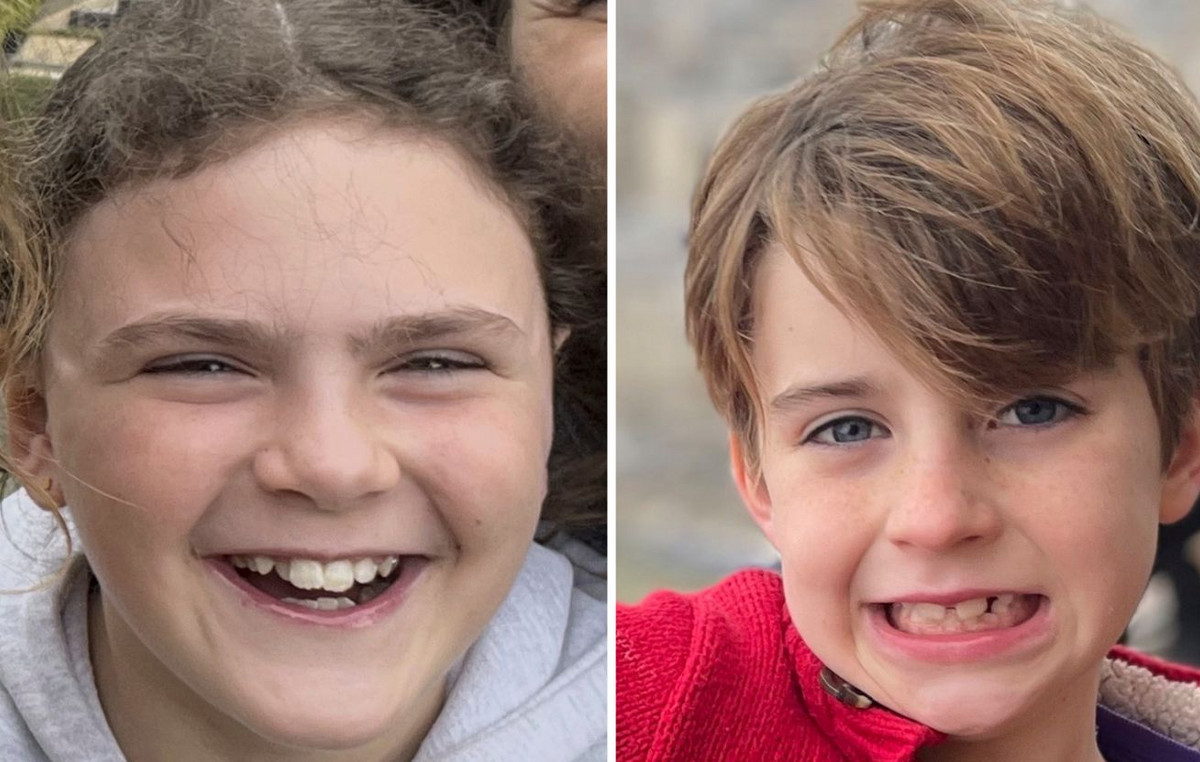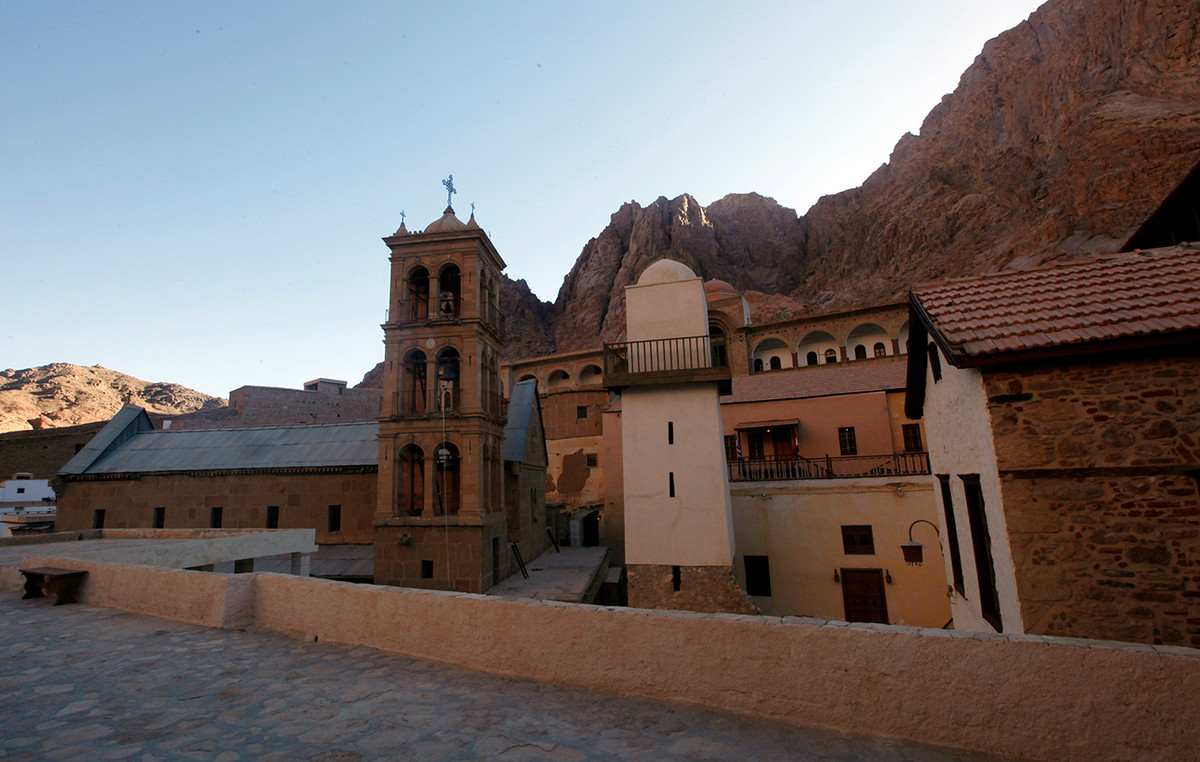A group of anti-Putin Russian citizens, aligned with the Ukrainian army, claimed responsibility for an attack in the Belgorod region of southwestern Russia, which borders northeastern Ukraine.
Russia’s Investigative Committee announced an investigation into the Telegram attack, claiming: “Residential and administrative buildings and civilian infrastructure were subjected to mortar and artillery fire. As a result of these criminal actions, several civilians were injured,”
Two areas in the region were hit overnight by unmanned aerial vehicles (UAVs), according to the regional governor Vyacheslav Gladkov causing two houses to catch fire.

A civilian from the village of Kozinka died as a result of the fighting on the border, Gladkov said on Tuesday (24).
Around 100 others were evacuated from the Russian border settlements of Glotovo and Kozinka in the Belgorod region, local officials said.
Aleksey Baranovsky a representative of the Kiev-based Political Center of the Russian Armed Opposition – the political wing of Russia’s Legion of Freedom – told CNN that the operation began on Sunday night (21) and the fighting was “ongoing”.
He did not specify the number of fighters who crossed into Russia. Baranovsky said the group wanted to “free our homeland from Putin’s tyranny”.
Russia’s Defense Ministry said at a daily briefing on Tuesday that its forces had driven the attackers back into Ukrainian territory using air strikes, artillery fire and military units.
He added: “The remnants of the nationalists were taken back to the territory of Ukraine, where they continued to be hit by fire until they were completely eliminated.”
What did the attackers do?
The attackers appeared to have taken over a border post and given the world dramatic footage of Russian citizens taking up arms against the Kremlin.
Smoke was also seen rising from apparent explosions in the regional capital of Belgorod, where local authorities confirmed what they described as two drone strikes.

The ground operation was far more ambitious than a raid earlier this year in the Bryansk region of southern Russia, which the Russians blamed on “armed Ukrainian nationalists”.
In a discussion with Erin Burnett of CNN retired Army Lieutenant General Mark Hertling characterized the Belgorod operation as a strike – a surprise attack designed to keep the Russian military in the rear ahead of a much-anticipated offensive from Kiev.
“This is all part of the modeling operations,” Hertling said. “What happened today and it’s a magnificent tactic, is these Liberty of Russia Legion or Russian Volunteer Corps, the so-called little green men are going in the opposite direction, they are trying to liberate Russian territory.”
“Little Green Men” was a common abbreviation for Russian special forces troops who appeared in Crimea during Russia’s forcible annexation of the Black Sea peninsula in 2014.
Pro-Ukrainian activists on social media are already having a field day, posting memes that compare the Belgorod incident to Russia’s not-so-secret operations to support separatists in the Donbass region, joking that the attackers would create a Russian-style state called the “People’s Republic of Bilhorod”.
Which groups are involved?
The Legion of Freedom for Russia said in Telegram on Tuesday that it and another group, the Russian Volunteer Corps, “continue to liberate the Belgorod region!”
The post described the groups as “patriotic volunteers” and claimed that Russia was vulnerable to attack as “Russia has no reserves to respond to military crises. All military personnel are dead, wounded or in Ukraine.”
As one of its fighters, who goes by the call sign “Caesar,” said in a video statement he recorded with his comrades before taking part in a cross-border attack on his homeland: “Russia will be free.”
A CNN interviewed the same fighter in December as the group fought across Ukraine against Russian attacks on the frontline city of Bakhmut.
“From the first day of the war, my heart, the heart of a true Russian, a true Christian, told me that I had to be here to defend the people of Ukraine,” Cesar said. A CNN agreed not to reveal his name to protect his identity.
“It was a very difficult process,” César said of joining the Ukrainian effort. “It took me several months to finally join the ranks of defenders of Ukraine.”
Now with his family in Ukraine – where he considers them safer – Cesar said he is one of about 200 Russian citizens currently fighting alongside Ukrainian troops against their own country’s armies. A CNN was unable to independently confirm that number.

The Ukrainian government, however, has distanced itself from the Russian fighter jets, saying they are operating independently in Russia.
“We can confirm that this operation is carried out by Russian nationals,” Andriy Yusov, a representative of Ukrainian Defense Intelligence, said in a comment to CNN : “In Ukraine, these units are part of the defense and security forces. In Russia, they are acting as independent entities.”
Russia’s reaction
While Russian officials condemned the attack, analysts noted widespread confusion in Russia’s information space over how the attack was permitted and how Moscow should respond.
Russian bloggers and pundits reacted with a “degree of panic, partisanship and incoherence, as they tend to exhibit when experiencing significant informational shocks,” the Institute for the Study of War (ISW) think tank wrote in its daily briefing on the conflict.
“The attack took Russian commentators by surprise,” assessed ISW.
It has the potential to be embarrassing for President Vladimir Putin, who for 15 months has been leading an invasion that he has unfoundedly claimed was necessary to keep Russia safe. With limited returns on the battlefield, Putin may now face discontent that the war is disrupting life at home.
Earlier this month, the Kremlin publicized an incident that saw two drones fly over the Kremlin. It remains unclear who was responsible – Moscow blamed Ukraine for what it called an attack on Putin’s life; Ukraine and the US have denied any involvement – but the dramatic video could be framed by Putin’s domestic critics as a visual example of the unveiled nature of Moscow’s war.
In a separate incident on Monday night, Russia’s Freedom Legion posted a video on Telegram that appears to show the so-called blue and white flag of free Russia flying over Moscow State University.
Other videos posted by the group also appear to show another Russian opposition flag flying over various areas of the Russian capital.
The group did not claim direct responsibility for the incidents and CNN could not independently verify the reports.
What is Kiev saying?
As is often the case after alleged violence on Russian soil since Moscow invaded Ukraine, the incident drew very different reports from the Kremlin and Kiev.
Kremlin spokesman Dmitry Peskov on Tuesday described the instigators as “Ukrainian militants, from Ukraine”, despite the fact that the group claims responsibility for being Russian nationals. Peskov had previously said that Kremlin forces were working to expel a “sabotage and reconnaissance group”, according to state media TASS.
A Ukrainian official acknowledged that the units carried out an operation in the area but insisted they were acting independently.
Ukrainian national security adviser Oleksiy Danilov told CNN that those responsible for the cross-border attack in Belgorod are Russians who want to get rid of the “darkness” in their country, denying any involvement by Kiev.
“They are Russians, it is their country and they have the right to be there,” Danilov told CNN . “There are some Russians who are on the light side and who have gone to deal with the darkness that exists in Russia now.
Danilov rejected accusations of Ukrainian involvement leveled by Moscow against Kiev and said the incident in Belgorod was a Russian matter only.
It is not entirely clear how Russian formations fighting alongside Ukraine are organized and equipped and how they respond to the Ukrainian military chain of command.
Some of the fighters appear to be operating armored Humvees and mine resistant ambush protected vehicles that are apparently of American origin, although the vehicles have been widely exported and sold to different end users across the world.
In response to a query from the CNN the International Legion of Ukraine – which incorporates volunteers from around the world – said that neither the Russian Volunteer Corps nor the Legion of Freedom for Russia belong to the International Legion of the Armed Forces of Ukraine.
It is also a mystery how many fighters Russian groups can actually muster. Open source detectives combed through recent videos looking for clues about the identities of some of the individuals who appear to be fighting in Belgorod, including some with apparent far-right and extremist beliefs.
What will this mean for the war?
The attacks are unlikely to force a shift in the momentum of the wider war in Ukraine, which has been mostly concentrated in eastern Ukraine and has seen few territories change hands for several months.
The conflict is at a virtual stalemate and is most likely to be affected by Ukraine’s spring counteroffensive against Russian forces, which may already be underway.
But, as with previous flashpoints away from the front lines, it has the potential to shape the narrative around the conflict in Russia and Ukraine.
Moscow has always wanted to paint a picture of Russian victimization as a pretext for stepping up attacks on Ukraine, given the public pretense that the invasion is an act of self-defense and necessary to keep Russia safe.
No doubt Putin will seek to use these attacks to bolster that narrative, despite Kiev’s denials that there was any official involvement. It is possible that a short-term display of anger could also occur.
After previous incidents that have embarrassed Russia – such as the obscure drone incident above the Kremlin this month and the attack on the bridge linking Russia with occupied Crimea in October – Moscow has responded with a barrage of missile strikes across Ukraine, including in the capital Kiev.
Putin will likely be eager to focus Russian attention on incidents outside the front lines, where his forces have struggled to deal a significant blow to Ukraine’s defenses – most clearly demonstrated by the costly, months-long effort to capture the relatively insignificant city of Bakhmut.
(Frederik Pleitgen, from CNN Yulia Kesaieva, Allegra Goodwin, Josh Pennington, Florence Davey-Attlee, Victoria Butenko, Anna Chernova, Sam Kiley, Vasco Cotovio, Peter Rudden, and Olha Konovalova contributed reporting)
Source: CNN Brasil
Bruce Belcher is a seasoned author with over 5 years of experience in world news. He writes for online news websites and provides in-depth analysis on the world stock market. Bruce is known for his insightful perspectives and commitment to keeping the public informed.







